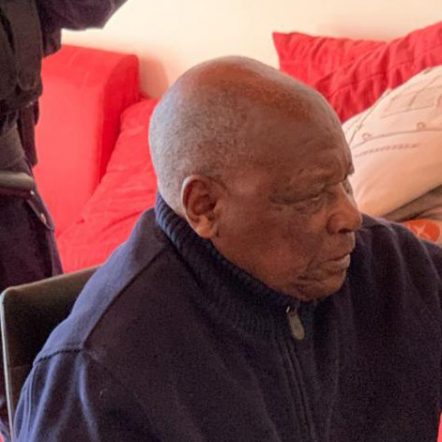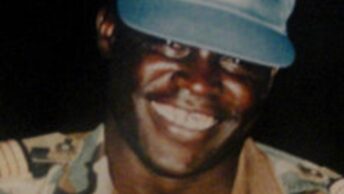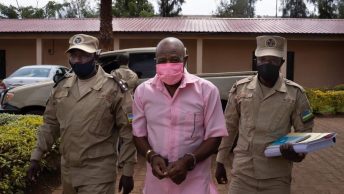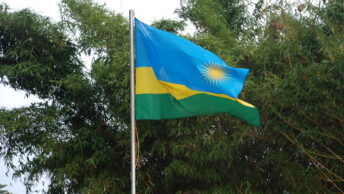I am not as excited about Kabuga’s arrest as probably every Munyarwanda of good conscience is, for several reasons.
Kabuga’s arrest raises more questions than it answers. Second, at 84, sickly, severely diabetic and mentally decaying, he is really of no use to anybody, except no bad deed should ever go un-punished.

There is no new information Kabuga can provide that is not in the public domain. May be the only positive thing that can come out of his apprehension is for him to be tried in Rwanda, a country he tried to annihilate because justice should not only be done, it should be seen to be done, by the victims of his evil machinations.
In the words of my friend Pan Butamire writing for the NEW TIMES, Kabuga should be returned to Rwanda so he can see for himself what “the blood-soaked tomb” he sought to erect looks like.
He continues, “It’s a pity because he would actually have been well treated here, with consideration of the weakness of his bones and the possibility of that heart halting.”
We can all rest assured of this: Kabuga will never roam anywhere a free man. He knows it. His circle of supporters knows, and better still his family knows it too. It is time for this monster of a man to face the music.
The nagging questions, are: How was Kabuga able to enter France undetected, and remain for, allegedly 10 years?
Why has France had a change of heart, now? Assuming this is so, why not then apprehend Kabuga’s fellow genocidaires, on top of the list Agathe Habyarimana who was denied asylum but continues to live in France, unbothered and on the public dole?
For sure Kabuga’s arrest and detention sends a clear message to other genocidaires all over the globe that they are not immune to the long arm of the law.
Amusingly, since Kabuga was nabbed, not a word has been heard from the usually bombastic and ailing Faustin Twagiramungu, proving what a toothless bulldog he is. Not a squeak.
Talk is cheap.
Details of Kabuga’s arrest are salacious, and very much James Bond like. Stick with me, kick back and enjoy this:
The man behind the operation that nabbed Kabuga is Belgian Serge Brammertz. He is the same man that tracked down Bosnian war criminals Radovan Karadzic and Ratko Mladic. The 58-year old prosecutor likes to leave lasting impressions, and Kabuga’s apprehension was no exception.
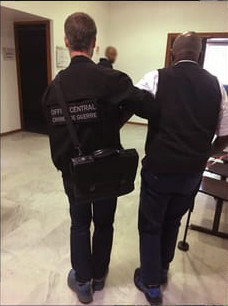
Coordinating the operation from his home in The Hague, Brammertz manned the phone while armed gendarmes flew through the door of a third-floor apartment in a Paris suburb and arrested a frightened and defeated bank-roller of the 1994 genocide against Tutsi.
I wish I had been a fly on the wall.
How was all this accomplished? Cell phone geolocation. Pattern of life intelligence, and sophisticated big-data crunching.
Was Kabuga shocked when the gendarmes burst through his door? According to Col Eric Emeraux who took part in the raid, “When you find 20 members of the gendarmerie, plus prosecutors, in your flat on a Saturday morning, you understand it is the end of the game.”
No shit.
What proof did they have the man in the flat was Kabuga? The minute he was nabbed, a police technician swabbed the inside of his cheek and raced the genetic material to a forensic lab. Two hours later, there was a match, compared to the DNA sample from Germany in 2007 — Kabuga’s last location.
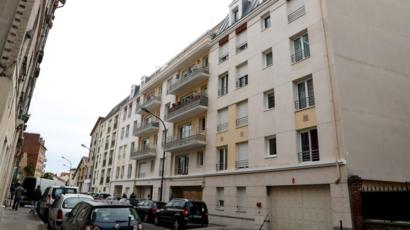
According to Brammertz, “I am personally convinced that he has been in that apartment for many years. And you know, he was rarely seen by neighbors. He very rarely went out for walks. So, he was living the quiet life of a retiree.” The hell he was.
What led to Kabuga’s capture? Informants, and different human sources who would report Kabuga was in Gabon, Madagascar or Burundi … only to throw off the tracking team.
Brammertz adds, “ We started assembling and analyzing telephone data, financial and immigration records, travel plans, and so on. As we became more data driven, it allowed us to concentrate our investigation on Western Europe.”
Kabuga lived in Germany in 2007 under a different identity and had surgery. He lived with his son-in-law, Augustin Ngirabatware, now a convicted genocidaire serving 30 years for genocide and crimes against humanity.
What tools were used to track Kabuga down? Cell-tower analysis and phone number analysis.
Did the coronavirus make the operation more challenging? According to Brammertz, “It is difficult to set up surveillance on an empty street in the middle of a lockdown. It paused the movements of persons of interest – his support network. We could determine who was likely with him in this place, which only confirmed our working hypothesis.”
According to Col Emeraux, “We were geolocating the family’s phones and we saw them moving.”
How big was Kabuga’s network? “We identified close to 20 persons of interest, which we reduced to five or six by the end. And by zooming in on what they were doing, where they were going, how they were communicating, well, it led us to conclude that he was almost certainly in that specific area.”
How many identities did Kabuga have? Twenty different identities and four passports from African countries which were neither fake nor stolen, indicating that they had been delivered by “competent authorities with the correct stamps on them.”
Did Kabuga have friends in high places? Yes, at the beginning of his run from justice.
“But over time these fugitives cannot rely on a broader network. And their network becomes much, much smaller. In the end, the only thing they can rely on is their family”, according to Brammertz.
Felicien Kabuga’s fall should not dampen our resolve to seek out the other members of his cabal. We cannot, and must not, betray the memories of our fallen. History would never forgive us.

